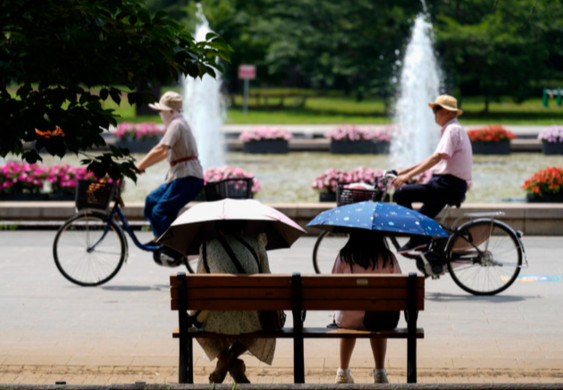Japan's population has been declining for 15 years in a row: records for births and deaths have been set
Last year, a record 730,000 babies were born in Japan, while the number of deaths in the same period was 1.58 million, breaking the record. The number of foreigners in the country also exceeded 3 million for the first time, making up about 3% of the total population. Polls show that young Japanese are increasingly reluctant to marry or have children.
Japan's total population fell by more than half a million people for the 15th year in a row, according to government data released Wednesday.
Last year, the birth rate in Japan reached a record low of 730,000. At the same time, 1.58 million deaths were recorded in the country in 2023, which also set a record. As of January 1, the population of Japan was 124.9 million people.
Figures released by the Interior Ministry also showed that the number of foreign nationals rose by 11 percent to 3 million, making up 3 percent of the country's population for the first time. They are mostly able-bodied people from 15 to 64 years old.
Surveys show young Japanese are increasingly reluctant to marry or have children, with bleak job prospects, a high cost of living that is rising faster than wages, and a growing gendered corporate culture at the expense of women and working mothers.
The government has earmarked 5.3 trillion yen (US$34 billion) in the 2024 budget to encourage young couples to have more children, including funding increased child care and education subsidies, with 3.6 trillion yen (US$23 billion) in annual tax revenues going forward. dollars) is planned to be allocated.
Experts say that these measures are mainly aimed at couples who are planning to have children or already have children, and will not solve the problem of the growing number of young people who do not want to get married.
By 2070, Japan's population is projected to decline by nearly 30 percent to 87 million. As a result, four out of every 10 people in the country will be 65 and older.















